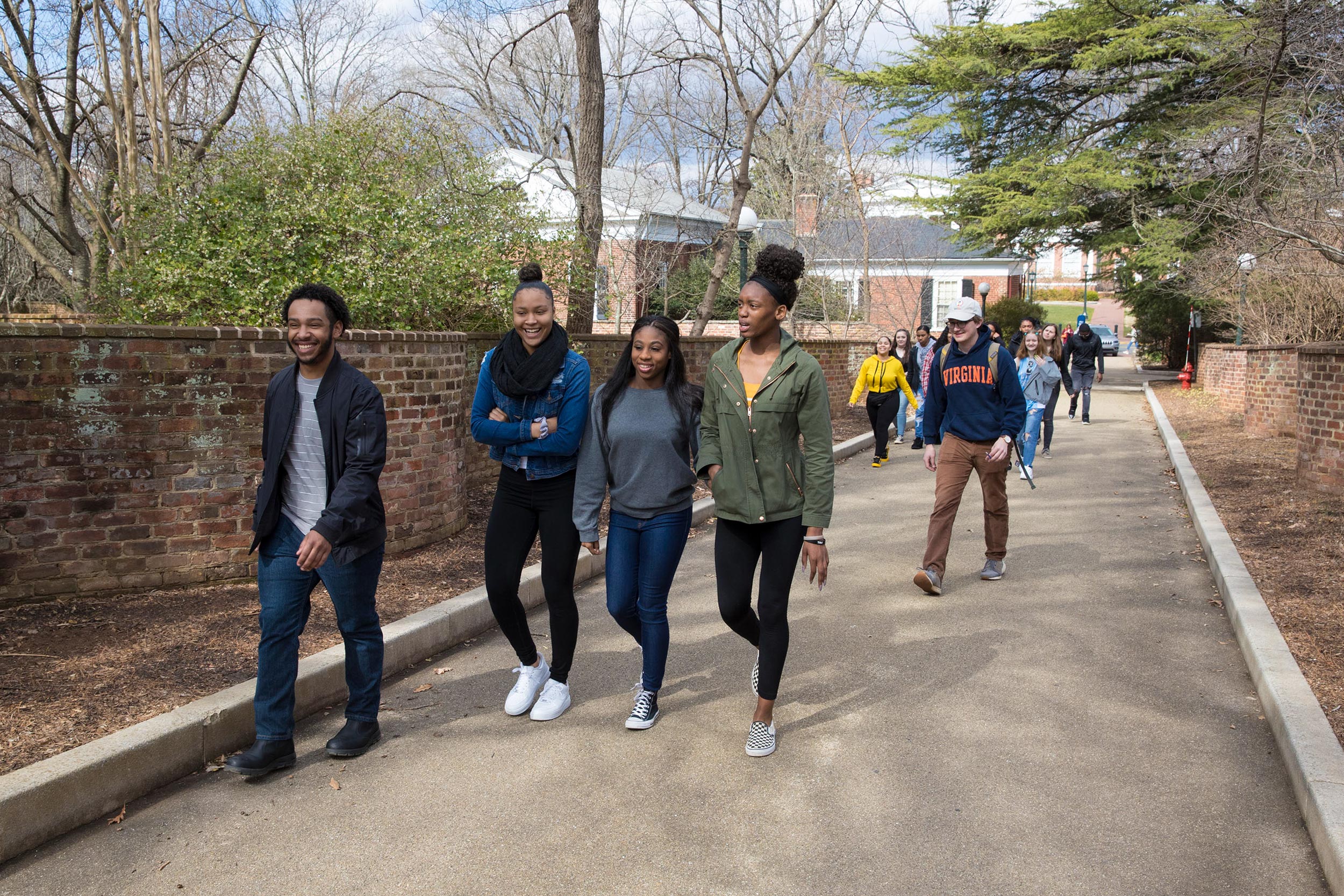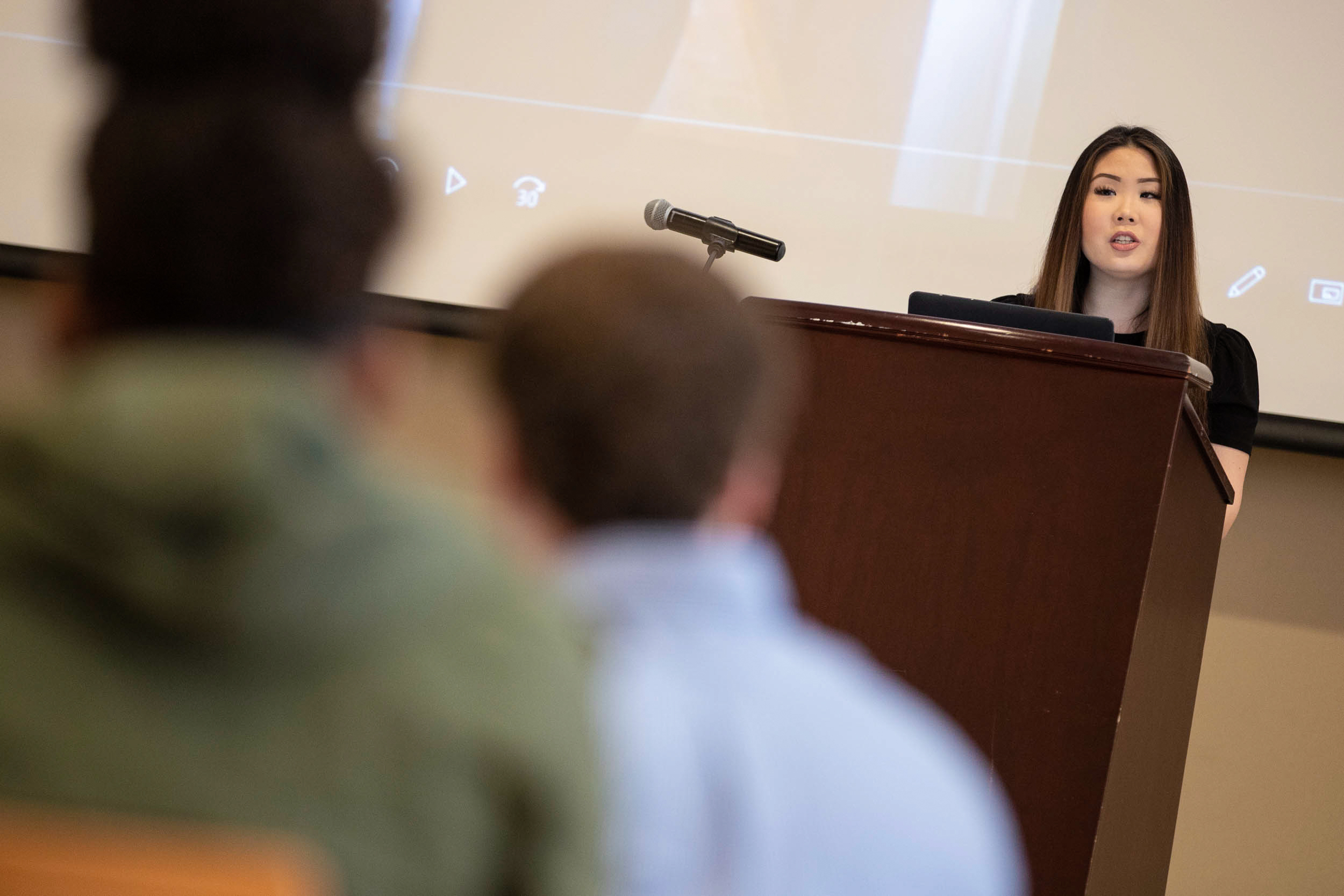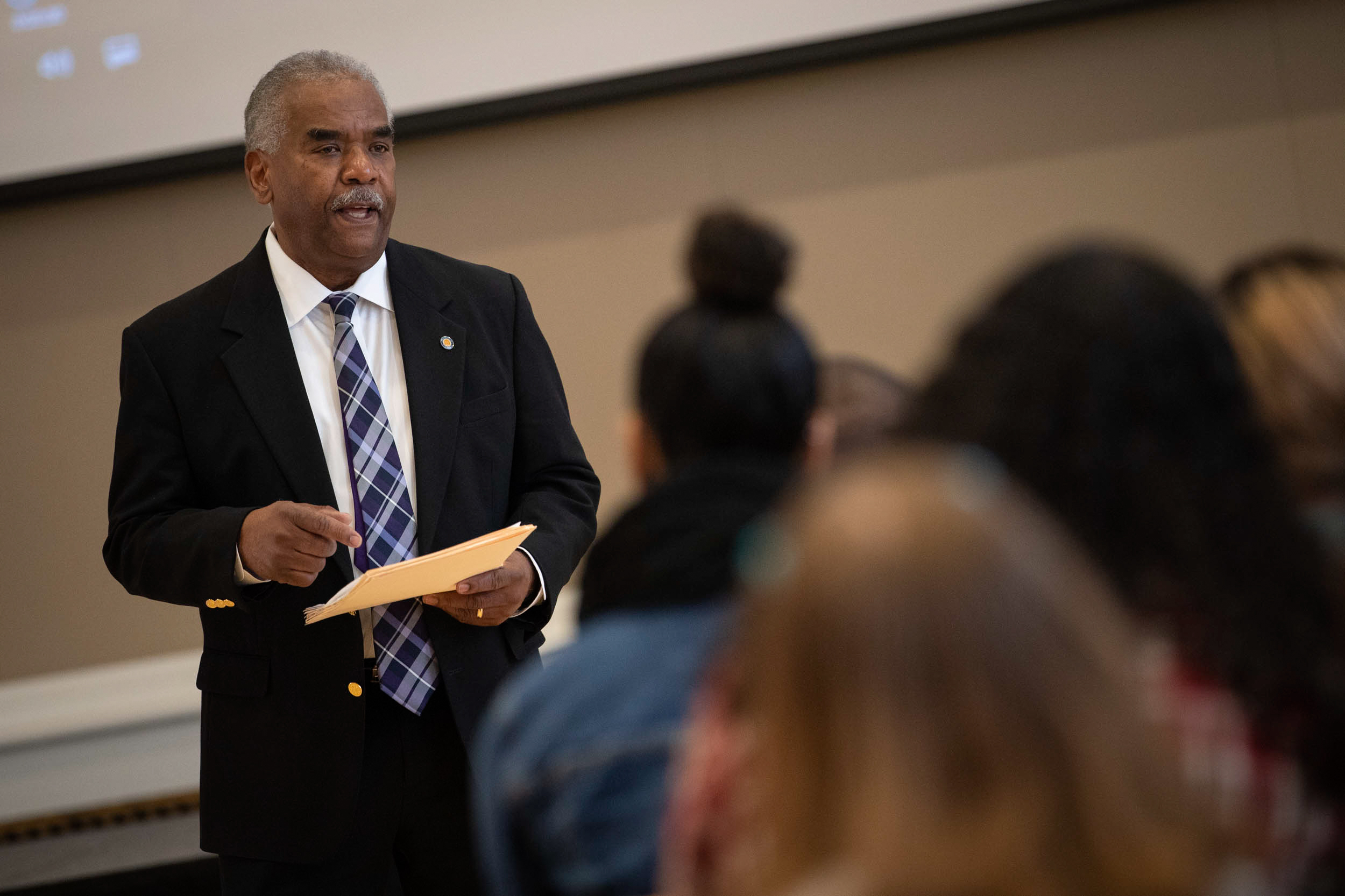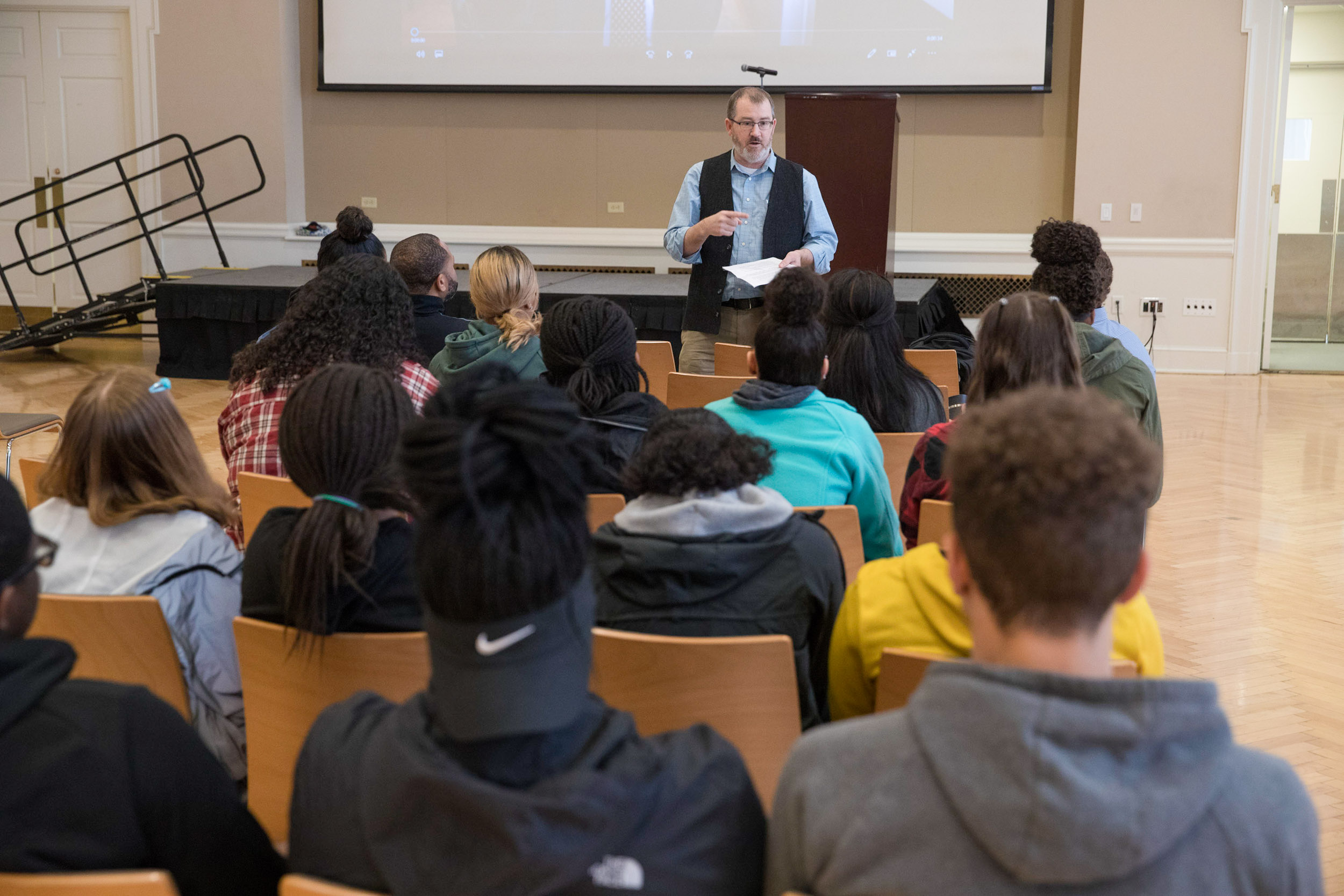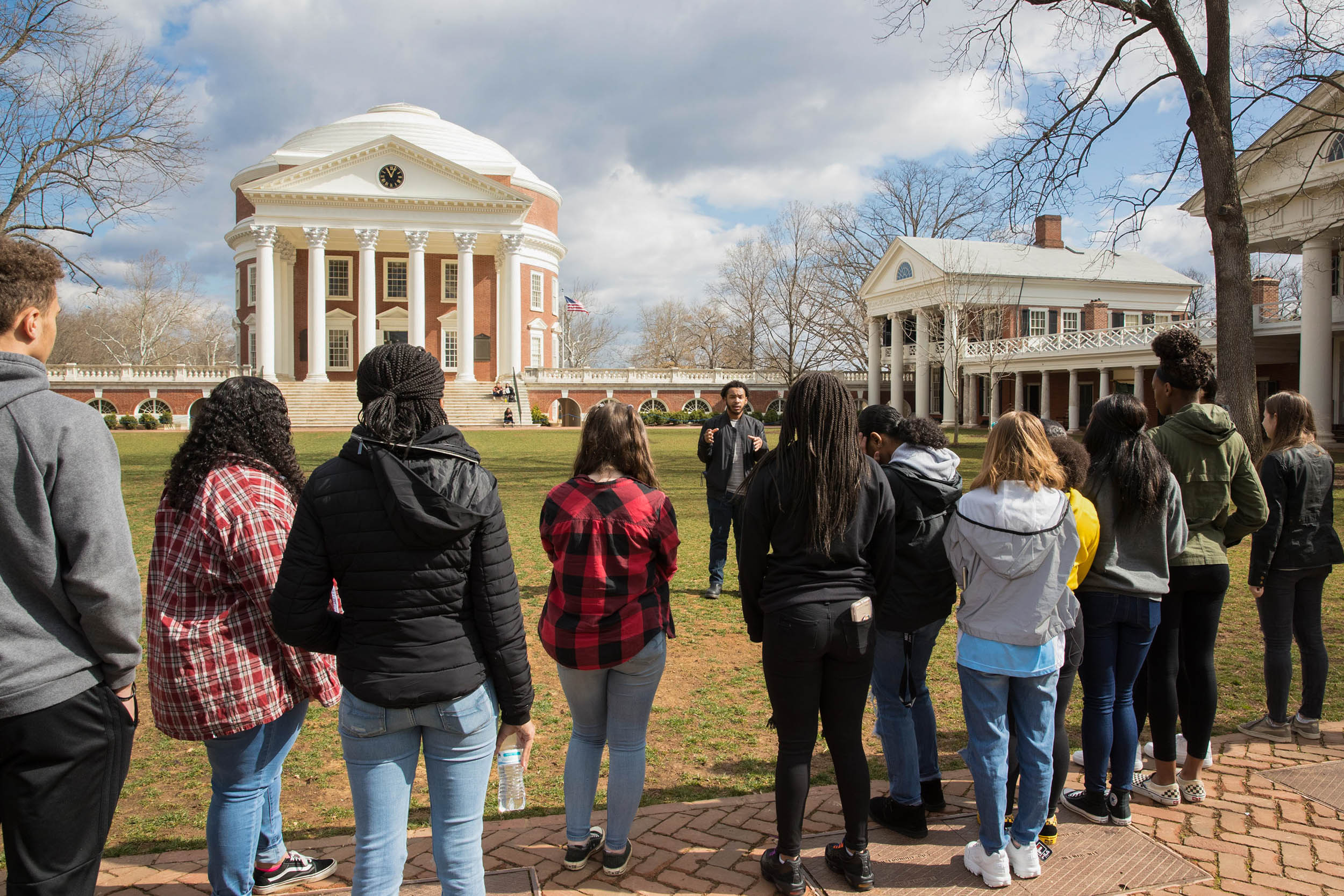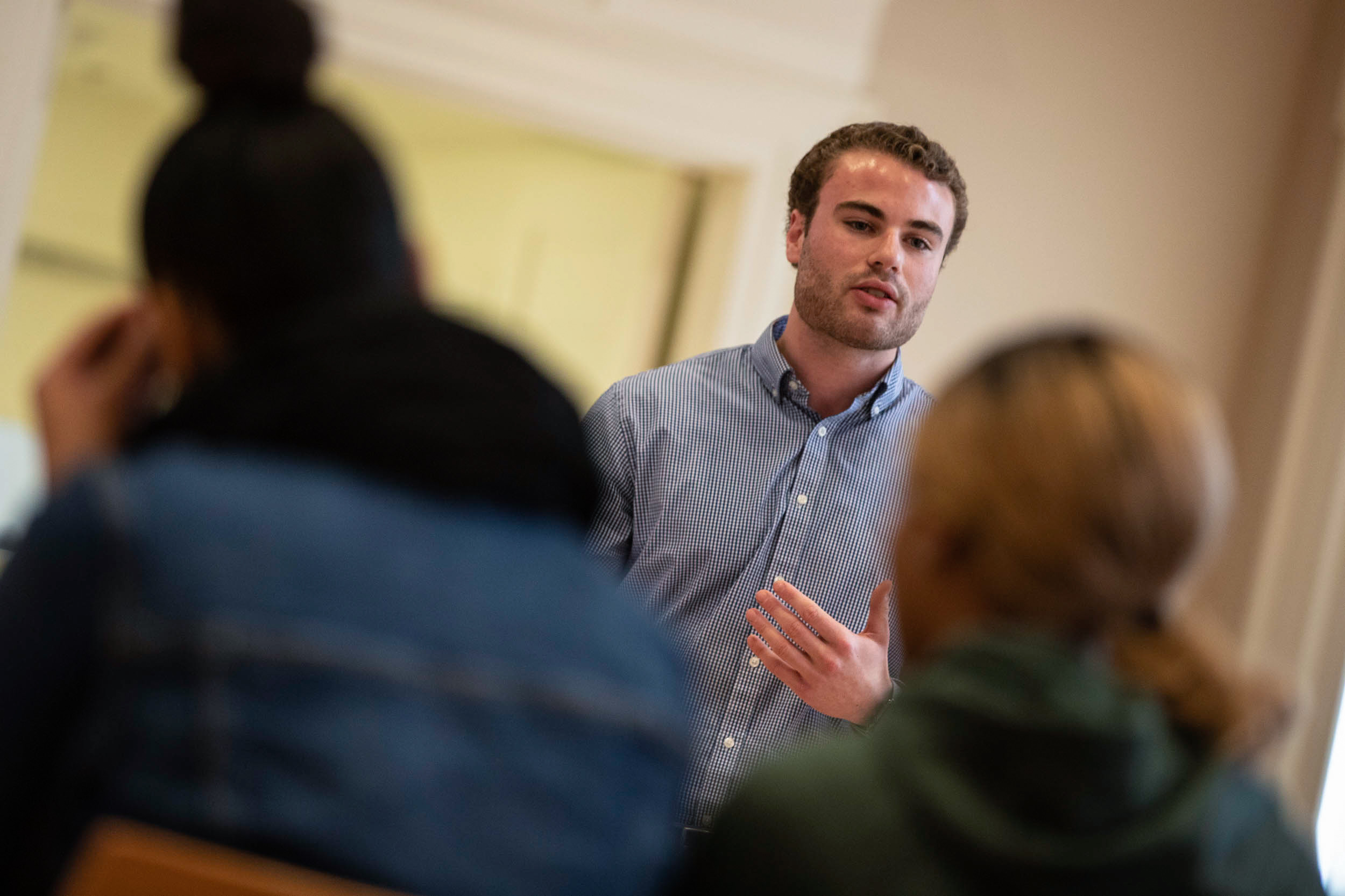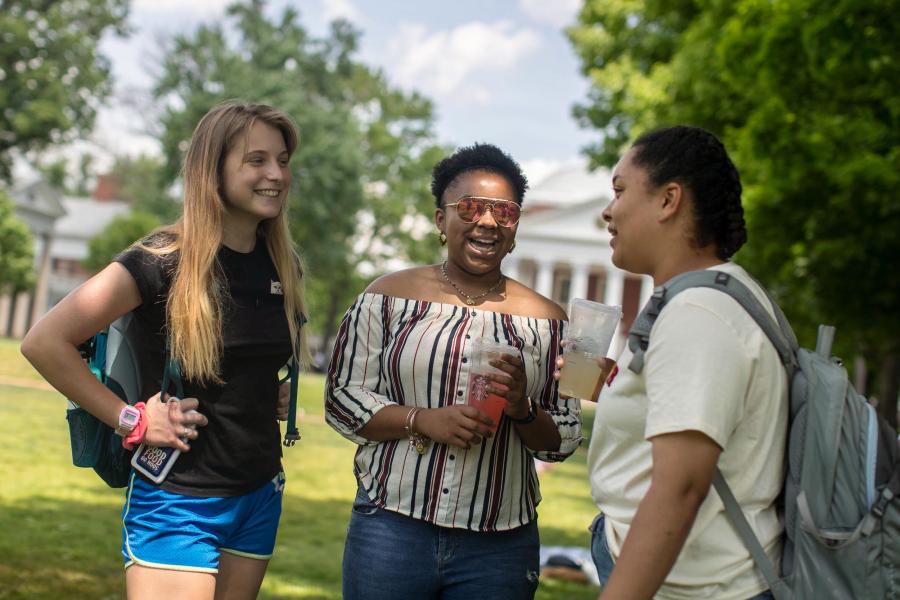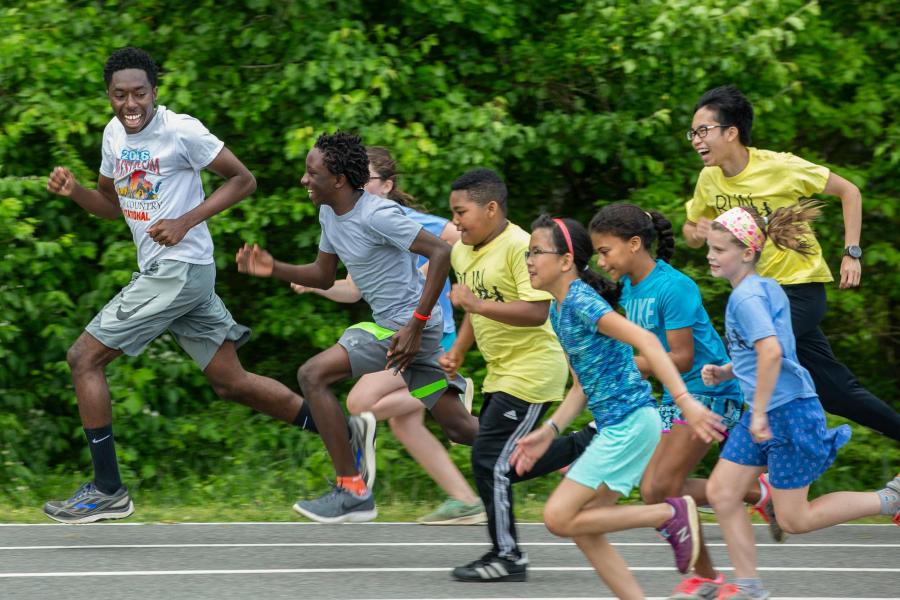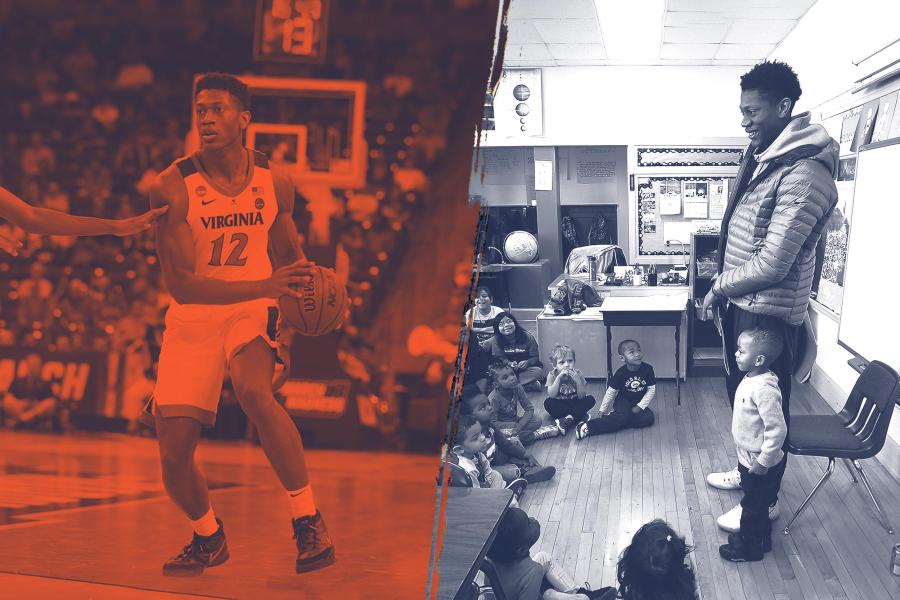Dasha Kinlaw, a junior at Monticello High School, has participated with Rise Together for two years. “They are very interactive with us and we are very interactive with them,” she said, standing on the Lawn following the tour. “They are very helpful with our assignments. They tutor us really, really well.”
Kinlaw had only been to UVA once before the March event. It was her freshman year for a school trip. She says she is planning to apply to James Madison University, Hampton University, the University of North Carolina’s Charlotte campus and Old Dominion University. She wants to study sociology or nursing. “Nursing is my number one choice,” she said.
Kinlaw plans to keep working with Rise Together her senior year. She said she loves the lighthearted mental breaks they take. “Sometimes we sit on balloons and try to pop them,” she said. “For ten minutes, you get a little break and then you go back to work and it really helps.”
Rise Together is Growing
Since it was founded three years ago by Bryan Christ, who graduated from the University in May, and his mother Gina, Rise Together has really grown.
“We have really stepped up our efforts to provide professional development opportunities for our UVA Facilitators through a new Leadership Team,” said Bryan Christ.
He said the team gives the facilitators, who work in the local schools with first-gen students, valuable experience that will make them more competitive job applicants and ultimately more successful in their careers.
Christ said the Monticello High School teacher who accompanied the high school students described the UVA visit as the best college tour he has ever been a part of.
The UVA facilitators, or mentors, team up with local middle- and high-school students who are participants in a national program called AVID, which stands for “Advancement Via Individual Determination.”
